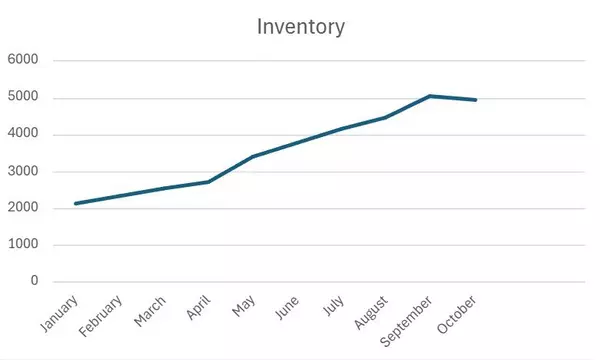
Can You Predict the Real Estate Market?
The million-dollar question in real estate often revolves around whether one can predict market trends precisely. The short answer is no, you can't. Market information is complex, having multiple variables, and even seasoned experts often grapple with unforeseen twists and turns. Yet, understanding market dynamics and indicators can certainly put you in a better position, whether you're a buyer, seller, or investor. For buyers, the real estate market can feel like a minefield. Prices fluctuate due to various factors: interest rates, employment statistics, and even geopolitical events. While you can't predict the market, you can arm yourself with knowledge. Observe trends over a period, study neighborhood development plans, and evaluate your financial readiness. Consider also the stability of your income and the long-term value of the property you’re eyeing. Historical data shows that housing usually appreciates over time, making it a smart investment, but there's no crystal ball to forecast the perfect purchase time down to a month or year. Sellers face their own dilemma when it comes to timing. Sell too soon, and you might miss out on additional equity. Wait too long, and you risk the market cooling off. Given the unpredictable nature of the market, the best strategy is to be prepared. Keep your property well-maintained, stay informed about local market conditions, and be ready to act when you find favorable conditions. Real estate agents often suggest looking for seasonal trends and buyer demand cycles, but these are based on historical patterns and can’t guarantee future outcomes. In the realm of investing, real estate has generally proven to be a reliable asset class. Whether it's rental properties, commercial land, or flipping homes, the idea has traditionally been to buy low and sell high. However, even the savviest investors can't predict market changes with absolute certainty. Risk management becomes crucial. Diversifying your portfolio, staying updated on market trends, and being prepared for potential downturns can help mitigate risk. Keep in mind that while real estate has historically appreciated in value, there are no absolute guarantees. Market information encompasses a wide range of data points, including economic indicators, consumer confidence, and even natural disasters. These elements interact in intricate ways, so predicting their collective impact on real estate remains elusive. Consider, for instance, the unforeseen surge in housing demand during the COVID-19 pandemic. Few could have anticipated the changes in home-buying behavior influenced by remote work and a desire for more spacious living environments. Another example is the constant shifts in interest rates, set by federal agencies but influenced by global economic conditions, making them difficult to predict for more than short-term projections. While you can't predict the real estate market with pinpoint accuracy. It is important to take steps with preparation and having an informed approach can lead to successful endeavors in real estate. Use available data to make educated decisions, understand your own financial constraints, and consult experts who can offer insights based on historical patterns and economic indicators. Real estate remains a historically good investment, enabling wealth creation and serving as a hedge against inflation. Though it's impossible to predict the real estate market with complete certainty, an educated approach tailored to your role—whether buying, selling, or investing—can certainly tilt the odds in your favor. By staying informed and prepared, you navigate the complexities of the market more confidently and make smarter, well-timed decisions. Real estate, with its historical resilience and potential for substantial returns, continues to be a worthy venture for those who approach it with the right mindset and strategy. For questions about real estate, contact Ed Black today at (403) 830-8510. Ed BlackREALTOR® Copyright © 2024 All Rights Reserved. This is not intended to solicit buyers or sellers currently under contract with another brokerage.

Things To Know When Buying Investment Property As A New Investor
A new investor once asked me, “Ed how do I decide what to buy?” I asked him what kind of real estate investing he was interested in. He told me, “Rental properties, of course.” When delving into the realm of rental property, acquiring education is paramount, lest one incurs costly lessons. Most individuals prefer pursuits other than landlord responsibilities. Late-night emergencies, like a burst hot water tank, are not uncommon for landlords. However, I refrained from inundating him with such scenarios, not wishing to dissuade him from exploring the potential of revenue properties. Instead, I aimed to impart the importance of acquiring valuable skills. Many dive into this venture only to have unfavorable or costly experiences, prompting a swift exit. The next question I asked him was, “How do you value your time? Do you have the spare time to manage your properties?" Property management companies abound, offering to handle landlord duties for a fee, typically ranging from 7 to 15% of gross rental income. Initially, experiencing this role firsthand can be beneficial for new investors. With accrued experience and financial stability, they can evaluate the performance of a property manager effectively. Location plays a pivotal role, consuming significant commuting time. Proximity facilitates property management and tenant showcasing. Optimal locations boast stability and proximity to amenities, such as shopping centers, schools, churches, and transportation options. When purchasing investment properties, assessing their condition is imperative. Continuous investment for repairs can erode rental income. I caution against fixer-uppers unless one possesses experience with such properties. Properties in good condition, essentially turnkey, often yield better results, mitigating stress from unexpected repairs and negative cash flow situations. Before committing to any real estate purchase, ensuring positive cash flow is vital. In an increasingly expensive market, finding a lucrative rental property can be challenging. I favor properties with suites and the appropriate zoning. It is important to find out if the rental property of interest with a suite had permits during its construction. Seek out properties that are more likely to generate a return. Even though some properties may be a favorable price, they may trap you into a situation where you are barely breaking even. Plan meticulously, setting aside 3% of property income for emergencies, minor repairs, and sudden vacancies. Establish a benchmark, such as a minimum of $300 post-expenses. Subsequently, explore avenues to augment this figure, perhaps by adding a bedroom to increase monthly income. Impress tenants by taking good care of the property and keeping up with the maintenance and any repairs needed. Treat them as assets, fostering longer-term tenancy through respectful interaction. Dealing with people can be daunting, but embodying the treatment you desire fosters tenant loyalty. For questions about real estate, contact Ed Black today at (403) 830-8510. Ed BlackREALTOR® Copyright © 2024 All Rights Reserved. This is not intended to solicit buyers or sellers currently under contract with another brokerage.

Alberta: A Promising Destination for Canadians Moving in Search of New Opportunities
With its stunning landscapes, thriving economy, and vibrant communities, Alberta has become an attractive destination for Canadians looking to start a new chapter in their lives. The province's allure is evident as more and more Canadians are flocking to Alberta in search of new opportunities and a higher quality of life. One of the main factors driving Canadians to Alberta is its strong and diverse economy. The province's abundant natural resources, such as oil, gas, and minerals, have contributed to its economic prosperity. This has resulted in a high demand for skilled workers, making Alberta an enticing destination for individuals seeking employment and career growth. The thriving job market combined with competitive wages has been a major pull factor for Canadians from all across the country. The Alberta real estate market is also a significant draw for those considering a move to the province. Despite recent shifts in the market, Alberta still offers affordable housing options compared to other provinces like British Columbia and Ontario. This affordability, coupled with a wide range of property types, allows buyers to find a home that suits their needs and budget. Moreover, Alberta's communities are known for their welcoming nature and strong sense of community. Whether you're moving to Calgary, Edmonton, or one of the province's smaller towns, you'll find a diverse mix of cultures, amenities, and recreational opportunities. The province's commitment to education and healthcare further adds to its appeal, ensuring that families have access to essential services and quality education for their children. When considering a move to Alberta, it's essential for buyers to do their due diligence. Researching the specific area, understanding the local real estate market, and working with a knowledgeable real estate agent are crucial steps to ensure a successful and smooth transition. A real estate professional can provide valuable insights into the local market dynamics, help negotiate the best deal, and guide buyers through the entire purchasing process. As more Canadians recognize the incredible opportunities that await them in Alberta, the influx of individuals and families moving to the province continues to grow. From its thriving economy to its welcoming communities and affordable real estate market, Alberta offers a promising future for those looking to make a fresh start. So, if you're considering a move to Alberta, now is the perfect time to explore the possibilities. Take advantage of the province's growing economy, affordable housing options, and warm communities, and embark on an exciting new chapter in your life. Alberta is calling, and Canadians are heeding its call. For questions about real estate, contact Ed Black today at (403) 830-8510. Ed BlackREALTOR® Copyright © 2024 All Rights Reserved. This is not intended to solicit buyers or sellers currently under contract with another brokerage.
Categories
Recent Posts










